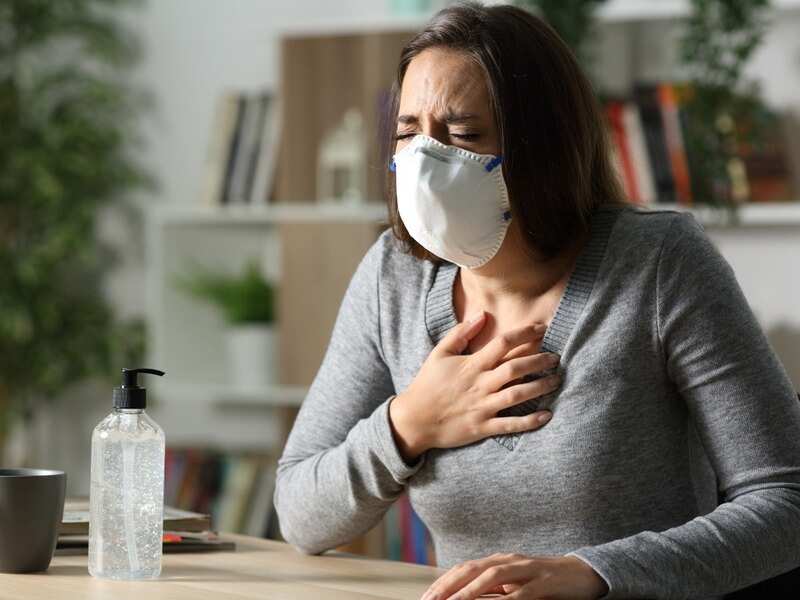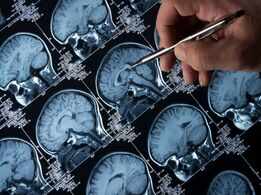Coronavirus: Why should patients get their heart checked post COVID-19?
#InternationalYogaDay: Yoga can be fun too!
The Times Of India launches '#CutTheShame' initiative to redefine narrative on menstrual health
Coronavirus: Study finds COVID survivors can still get reinfected from Alpha, Beta variants
Coronavirus: Do's and Don'ts of using hand sanitisers against COVID-19 infections
Coronavirus: Why should patients get their heart checked post COVID-19?
Coronavirus: Why should patients get their heart checked post COVID-19?

While millions of people in India have contracted SARS-CoV-2, the recovery rate has been quite encouraging. However, the after-effects of the disease can cause long-term health issues. A recent study by the Oxford Journal has revealed that nearly 50% of people hospitalized with severe COVID-19 have shown evidence of heart damage months after recovering from the disease.
COVID-19 infection triggers inflammation in the body that may lead to weakening the heart muscle, abnormalities in heart rhythm, and even cause clot formation in blood vessels. Second, the virus may directly invade receptor cells, known as ACE2 receptors, within the myocardial tissue and cause direct viral harm. These complications, such as myocarditis, an inflammation of the heart muscle, could lead to an increase in heart failure overtime. For people with pre-existing heart diseases, this can result in advancement in the issue or rise of different heart ailments.
Heart failure occurs when the heart muscle doesn't pump blood as well as it should. Certain conditions, such as narrowed arteries in your heart (coronary artery disease) or high blood pressure, gradually leave your heart too weak or stiff to fill and pump efficiently. This is a chronic condition and it gradually gets worse. Medications and therapy can help a patient live longer and better with it. However, heart failure can be fatal depending on the severity of the condition.
37-year-old, Somnath Mukherjee was experiencing fever, dry cough and shortness of breath. He underwent the test for COVID-19 and the results were positive. He was diagnosed with severe acute respiratory distress syndrome and accelerated pneumonia. Post consultation the doctor, he decided to undergo the V-V ECMO treatment for Lung support with Centrimag Console & Centrimag Blood Pump. This treatment can be used as a rescue therapy in acute respiratory failure for improving the quality of life. ECMO is used to provide oxygenation and CO2 removal, or both while the lungs recover, or as a bridge to transplant in case of end stage lung disease. He was weaned from the ventilator within 15 days post his treatment, has been discharged and is now doing fine. For patients who have recently developed chest pains post-COVID-19 or had a minor heart disease prior to being infected; getting an imaging test can be helpful. The test can show if the virus has caused lasting damage to the heart muscles. It is advised even for people who only experienced mild COVID-19 symptoms.
In the initial stages of heart failure, medication can help manage the condition, in case of advanced heart failure, treatment options such an LVAD procedure or a heart transplant along with therapy are necessary for the patient. An LVAD (left ventricular assist device) helps the left ventricle (main pumping chamber of the heart) pump blood to the rest of the body. It is a feasible and safe option for management of the condition.
Heart failure signs and symptoms may include:
Although it can be difficult living with a chronic condition like heart failure, many people learn to manage the symptoms through proper medications and treatments and go on to lead fulfilling lives.
The article has been authored by By Dr. R. Ravi Kumar, MD, DM, FESC, Sr Consultant & Clinical lead heart failure and transplantation. MGM HEALTHCARE
COVID-19 infection triggers inflammation in the body that may lead to weakening the heart muscle, abnormalities in heart rhythm, and even cause clot formation in blood vessels. Second, the virus may directly invade receptor cells, known as ACE2 receptors, within the myocardial tissue and cause direct viral harm. These complications, such as myocarditis, an inflammation of the heart muscle, could lead to an increase in heart failure overtime. For people with pre-existing heart diseases, this can result in advancement in the issue or rise of different heart ailments.
Heart failure occurs when the heart muscle doesn't pump blood as well as it should. Certain conditions, such as narrowed arteries in your heart (coronary artery disease) or high blood pressure, gradually leave your heart too weak or stiff to fill and pump efficiently. This is a chronic condition and it gradually gets worse. Medications and therapy can help a patient live longer and better with it. However, heart failure can be fatal depending on the severity of the condition.
37-year-old, Somnath Mukherjee was experiencing fever, dry cough and shortness of breath. He underwent the test for COVID-19 and the results were positive. He was diagnosed with severe acute respiratory distress syndrome and accelerated pneumonia. Post consultation the doctor, he decided to undergo the V-V ECMO treatment for Lung support with Centrimag Console & Centrimag Blood Pump. This treatment can be used as a rescue therapy in acute respiratory failure for improving the quality of life. ECMO is used to provide oxygenation and CO2 removal, or both while the lungs recover, or as a bridge to transplant in case of end stage lung disease. He was weaned from the ventilator within 15 days post his treatment, has been discharged and is now doing fine. For patients who have recently developed chest pains post-COVID-19 or had a minor heart disease prior to being infected; getting an imaging test can be helpful. The test can show if the virus has caused lasting damage to the heart muscles. It is advised even for people who only experienced mild COVID-19 symptoms.
In the initial stages of heart failure, medication can help manage the condition, in case of advanced heart failure, treatment options such an LVAD procedure or a heart transplant along with therapy are necessary for the patient. An LVAD (left ventricular assist device) helps the left ventricle (main pumping chamber of the heart) pump blood to the rest of the body. It is a feasible and safe option for management of the condition.
Heart failure signs and symptoms may include:
- Shortness of breath
- Fatigue and weakness
- Swelling in the legs, ankles and feet
- Rapid or irregular heartbeat
- Reduced ability to exercise
- Persistent cough
- Increased need to urinate
- Very rapid weight gain from fluid retention
- Lack of appetite and nausea
Although it can be difficult living with a chronic condition like heart failure, many people learn to manage the symptoms through proper medications and treatments and go on to lead fulfilling lives.
The article has been authored by By Dr. R. Ravi Kumar, MD, DM, FESC, Sr Consultant & Clinical lead heart failure and transplantation. MGM HEALTHCARE
End of the article
Comments (0)
Featured in Health & Fitness

Why patients should get their heart checked post COVID?

Malaika Arora credits FACE yoga for her looks

COVID survivors can get reinfected from variants

Should you get COVID vaccine when you are sick?

Mistakes to avoid while running on a treadmill

Rujuta Diwekar's 3 tips to beat sugar cravings

5 guilty pleasures that can help lose your weight fast

Home remedies to get rid of excess sweating

5 reasons you should be using a rowing machine
LATEST VIDEOS
Health-Fitness
 Yoga poses to lose post-pregnancy weight by Yoga Expert Vandana Gupta09:05
Yoga poses to lose post-pregnancy weight by Yoga Expert Vandana Gupta09:05 #InternationalYogaDay: Zubin Atré explains how yoga is the perfect healing therapy during these trying times08:27
#InternationalYogaDay: Zubin Atré explains how yoga is the perfect healing therapy during these trying times08:27 Yoga flow for weight loss by Manisha Kohli05:59
Yoga flow for weight loss by Manisha Kohli05:59 Yogic practices to improve lung capacity10:00
Yogic practices to improve lung capacity10:00 International yoga day 2021: Singing bowl therapy to relieve stress and anxiety11:19
International yoga day 2021: Singing bowl therapy to relieve stress and anxiety11:19 #Lifelineseries: How to cope with survivor's guilt and grief after COVID recovery06:02
#Lifelineseries: How to cope with survivor's guilt and grief after COVID recovery06:02 COVID-19 and brain tumour risk: Myths and facts05:26
COVID-19 and brain tumour risk: Myths and facts05:26 Feeling demotivated to workout? Here's help for you02:25
Feeling demotivated to workout? Here's help for you02:25 Can you get vaccinated during periods?04:57
Can you get vaccinated during periods?04:57 The best way to move forward is to start speaking about menstruation, says Pooja Bedi01:35
The best way to move forward is to start speaking about menstruation, says Pooja Bedi01:35
StoriesSEE All

























































































![[New!] Level 4 - 30 minute tempo fat-burning!
[New!] Level 4 - 30 minute tempo fat-burning!](https://static.toiimg.com/thumb/79327298.cms?width=147&height=86)















closecomments
SIGN IN WITH
FacebookGoogleEmail